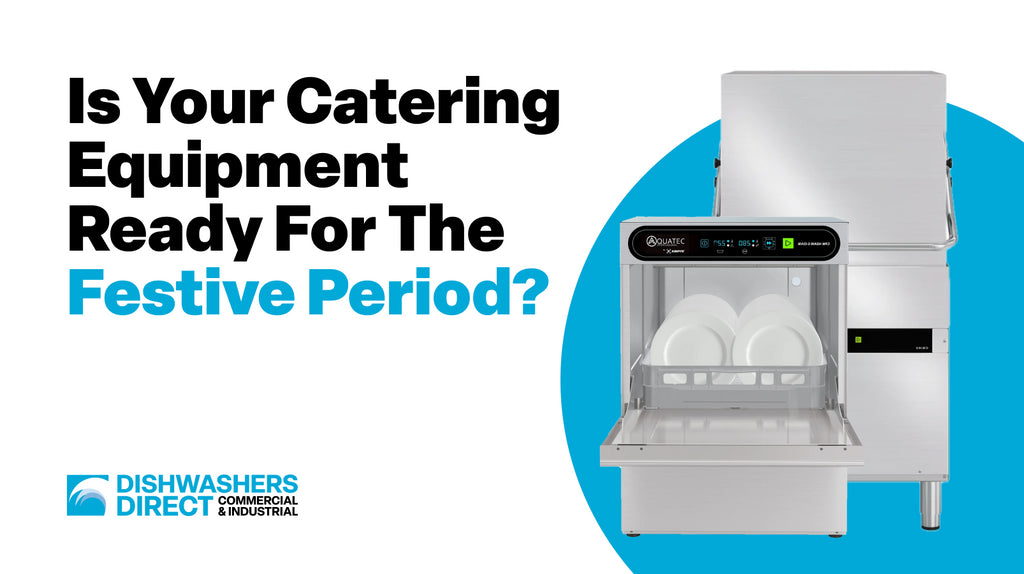Is Your Catering Equipment Ready For The Festive Period?
Posted by SAMUEL DEAKIN

As we enter the winter months and the festive period gets closer, conducting winter maintenance on your commercial dishwasher is crucial. The festive period is the busiest period for the hospitality industry, and any machine downtime could prove costly for your business. Maintenance can be especially important for kitchens that experience temperature fluctuations.
Here are some of our tips to help you maintain your commercial dishwasher this winter:
Prevent Freezing
Ensure your water supply lines leading to the dishwasher are well insulated to prevent freezing. Frozen pipes can disrupt water flow to the dishwasher and cause potential damage.
If your kitchen or dishwashing area is exposed to cold temperatures, ensure the kitchen is adequately heated to prevent freezing pipes or damage to the machine's internal components.
Running your machine regularly can keep water moving through the system to stop water from freezing inside the pipes.
Check Door Seals
Inspect your dishwasher's door gaskets for any cracks, wear, or signs of leakage. Cold weather can cause seals to stiffen and lose effectiveness, allowing heat and moisture to escape reducing efficiency and performance.
Check the Heating Elements
Check the dishwasher's heating elements are functioning correctly. These elements are responsible for heating water to the appropriate temperature for sanitising dishes. Mineral build-up or scale can reduce the effectiveness of heating elements. Descale your dishwasher regularly to prevent limescale from forming, especially if you're in a hard water area.
If you do live in an area with hard water, you can read our guide on water softeners here.
Monitor Temperature Settings
Check that your dishwasher is reaching the correct temperature for washing and rinsing. Cold weather can affect your machine's temperature stability, so ensure the water temperature is adequate for proper sanitation. If you find the water temperature is too low, adjust the thermostat or settings to compensate.
Lubricate Moving Parts
Colder temperatures can cause moving parts like door hinges and spray arms to stiffen. Lubricate these parts with food-safe lubricants to ensure smooth operation during winter.
Regularly Check Filters
With your business being especially busy in the festive period and your dishwasher being used more frequently, food and debris can accumulate quicker in dishwasher filters. Clean your dishwasher's filters out regularly to avoid blockages.
Drain the Machine Properly
At the end of each working day, make sure the dishwasher is fully drained to prevent water from sitting in the machine overnight. This helps avoid the risk of water freezing inside of the pipes or internal components. Many commercial dishwashers have a drain cycle that can be utilised.
Check Detergent and Rinse Aid Systems
Make sure that the detergent and rinse aid dispensers are properly filled and functioning. Cold temperature can sometimes cause liquid detergents to thicken or harden, affecting their flow. Switch to winter-grade detergents formulated to perform well in colder temperatures if necessary.
'Winterise' Dishwashers Not in Use
If your dishwasher is not going to be used for an extended period during the winter, e.g. seasonal businesses, fully drain it and disconnect the water supply to prevent freezing and water damage. Thoroughly clean the inside of the machine and let it dry completely to avoid mould or rust developing when not in use.
By implementing these maintenance tips, you can keep your commercial dishwasher running smoothly and efficiently throughout winter, reducing the risk of breakdowns and costly repairs.